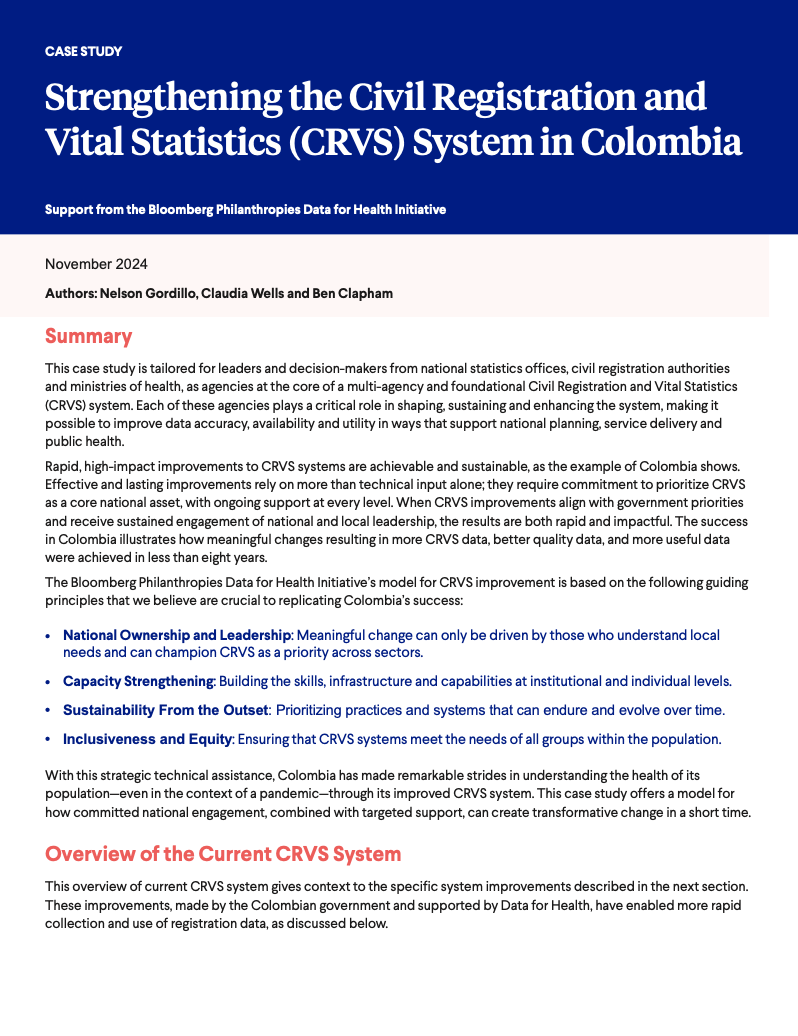This case study is tailored for leaders and decision-makers from national statistics offices, civil registration authorities and ministries of health, as agencies at the core of a multi-agency and foundational Civil Registration and Vital Statistics (CRVS) system. Each of these agencies plays a critical role in shaping, sustaining and enhancing the system, making it possible to improve data accuracy, availability and utility in ways that support national planning, service delivery and public health.
Rapid, high-impact improvements to CRVS systems are achievable and sustainable, as the example of Colombia shows. Effective and lasting improvements rely on more than technical input alone; they require commitment to prioritize CRVS as a core national asset, with ongoing support at every level. When CRVS improvements align with government priorities and receive sustained engagement of national and local leadership, the results are both rapid and impactful. The success in Colombia illustrates how meaningful changes resulting in more CRVS data, better quality data, and more useful data were achieved in less than eight years.
Recent Abstracts
Messaging Recommendations for Effective Road Safety Campaigns: Lessons From Formative Research for Drink…
Testimonials: Personal stories that have the power to save lives on the road
Knowledge, Attitudes, and Practice Study on Lead Poisoning and Pollution in Indonesia
Improving Civil Registration and Vital Statistics Systems in French-Speaking Countries: Opportunities and Challenges
Estimation of the direct and indirect costs attributable to alcohol consumption in Brazil
Guidance for Collection and Processing of Cause-of-Death Data in the Civil Registration and…
Vital Strategies: Reimagine Public Health
Public perceptions of emissions testing in Jakarta, Indonesia
Cost-Benefit Analysis for Air Pollution Control Strategies in Jakarta
Key Messages on Alcohol Harms and Policy Solutions
